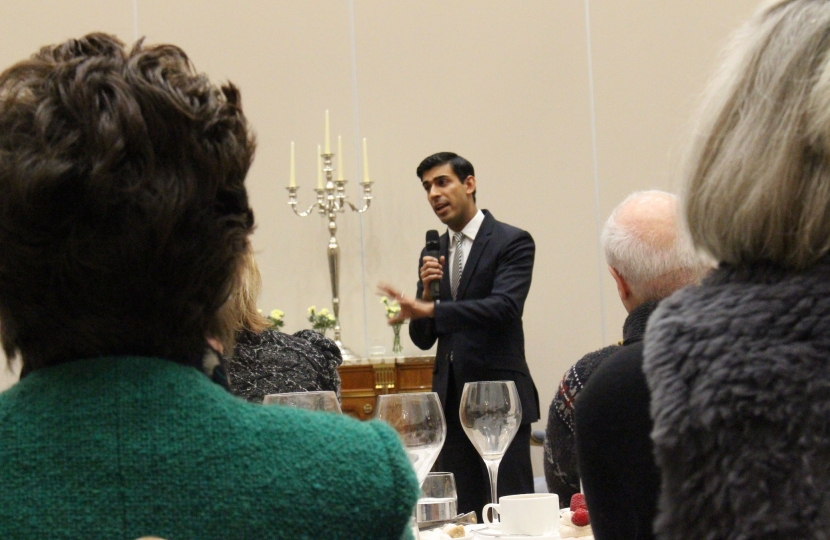
Britain leaving the EU will mean the end of the Brussels “vegetable police” interfering in UK farming, says Richmond MP Rishi Sunak.
Speaking in the Commons, Mr Sunak said the British food and drink industry has been “held back” by 50 years of interference by the EU.
He spoke of a letter he received from a farmer last year who had been told he could not grow cabbages because they were too similar to cauliflowers.
During a debate on the impact of Brexit on the rural economy, he said: “He had been informed that he could no longer grow cabbages because they were considered by the EU to be too similar to cauliflowers for compliance with the three crop rule.
“Turnips, he was helpfully advised, would be more acceptable.
“Agriculture and food and drink are great British success stories yet for half a century they have been held back by the ceaseless meddling of Brussels’ self-appointed vegetable police.”
Mr Sunak said the UK’s divorce from Brussels would allow the Government to implement tailor-made policies to improve the nation’s rural economy.
“Wonderful as Provence is, it is not the Yorkshire Dales,” he said.
“As dramatic as Seville’s orange groves are, they are not Dartmoor and Exmoor. “Our rural areas are not the same as those of the 27 other European countries.
“Outside of the EU we can design the policies that work specifically for our rural communities and use our new found freedoms to create a rural economy more robust and dynamic than ever before.”
Later, at a debate about the impact of Brexit held at Tennants auctions rooms in Leyburn, the MP said it would be vital that the new trade deals entered into after Britain leaves provided a level playing field for British farmers.
New trade deals had to take account of the high welfare standards British farmers worked to – and the costs incurred as a result.
He said: “Most farmers are happy to compete if they think it is a level playing field and I think our job and my job is to ensure these new trade agreements put in place a level playing field.”
He added that British consumers needed to be involved in a debate about how vital it was to buy British.
“We all need to play a role because we need to convince the person who is going shopping in suburban Birmingham that it is worth paying 5p more for their milk because the British farmer is working to a higher welfare standard.
“You want to get pork that is reared in this country because the pigs are not being kept in the conditions they are in Poland or Gremany or Holland.
“It is not going to be easiest debate in the world because people like the allure of cheap things without thinking about where they are coming from.”
Mr Sunak stressed that a British Agricultural Policy offered the UK and its farmers a golden opportunity to provide a tailor-made solution of farm support and the regulation deemed necessary for the UK agricultural industry.
